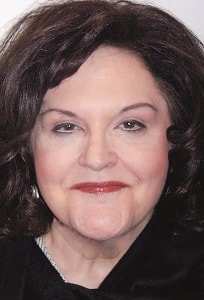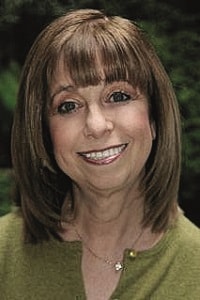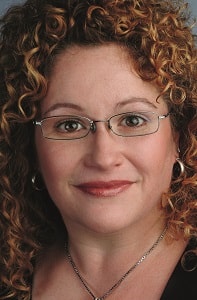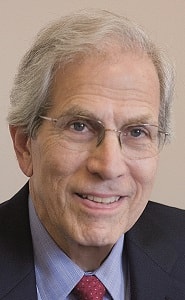Theatre lore is packed with horror stories about performers cracking or missing notes on stage or—even worse—losing their voices completely. Luciano Pavarotti had, near the start of his career, a disastrous concert in the Italian city of Ferrara around the time that a nodule first developed on his vocal chords; as a result, he gave up singing for a while. In 1997, Julie Andrews’s voice was seriously damaged after she underwent surgery for polyps that developed on her vocal chords while she was performing in Victor/Victoria on Broadway. And Nathan Lane frequently missed performances of the Broadway production of The Producers owing to a polyp on his left vocal chord.
Without a doubt, the care of the voice is as essential to the business of being a professional actor or singer as remembering one’s lines. But hectic schedules, smoky bars, flu season and countless other challenges constantly conspire to derail attempts to sing in public with confidence, comfort and ease. Here, a wide range of singing experts—voice therapists Joan Lader, Joanna Cazden and John Haskell; voice trainers Judith Farris, Kate DeVore, Joan Melton, Janet Rodgers and Scott Kaiser; performers Susan Graham and Kristin Chenoweth, as well as choral director Ian Robertson—impart their top tips for maintaining a healthy and successful singing career.
1. TECHNIQUE IS KING

Maintaining great technique is without question the basis for a healthy voice. Good technique prevents injury and enables performers to sing at the top of their game every time. “With proper training, the singer/actor learns to release excess tensions in the body and throat muscles,” says Rodgers. “This means that the vocal mechanism is sitting in a muscular environment that will allow it to function at its best. Proper vocal technique means that the singer/actor has learned to use ‘diaphragmatic breath support’ in singing. This moves the effort of support to the abdominal muscles and away from the muscles that are closest to the throat. Proper vocal technique means that the singer/actor has trained the vocal folds to respond to pitch changes and that the singer/actor can maximize the gifts that nature has provided.”
“Improper technique can lead to vocal injuries, which can be annoying and limiting at best and career-ending at worst,” says DeVore. “Most common vocal injuries (nodules, polyps, bruising, swelling) are caused at least in part by the vocal cords slamming together too hard when we speak, sing, shout, scream, wail, keen, sob and so forth. There are ways to do all of those things healthily, which ensures that a performer will have a flexible voice to last through his or her career.”
Like many experts, Farris believes that proper technique begins with the breath. “The only physical part of singing should be breathing,” she says. “That should be naturally obtained and constantly maintained. It is much like a violinist practicing bowing. I know a good violinist is always attentive to balancing the bow on the strings. In singing, if one’s breath is balanced, it is nearly impossible to have any kind of strain on the vocal apparatus, and the easiest and most beautiful sound is achieved. Thus obtaining a correct vocal technique is the key to the prevention of vocal problems. The vocal cords themselves are muscles. Athletes and dancers know that any muscle that is used correctly gets stronger with use, not weaker or injured.”
However, good technique cannot be gained through a “one-size-fits-all” approach, says Cazden, who explains that “many vocal techniques work but for a different reason than the teacher proclaims. The field of voice is still emerging from centuries of speculation, guesswork and secretive folklore. A singer need to trust his or her own experience, use what works and not get distracted by flowery explanations.”
Adds Melton: “Each performer is unique, so the to-do list that answers all the issues does not exist. However, to quote Mary Hammond, head of musical theatre at the Royal Academy of Music in London, ‘Technique frees the imagination.’ The better, more solid and more unconscious the technique, the freer the performer is to grow, explore and mature.”
2 IT’S ALL ABOUT PREVENTION

Prescription medications might get a singer under duress through a performance, but they are not the way to solve vocal issues in the long-term. “Many singers resort to doctors who fill them with cortisone shots to get through a performance or audition,” says Farris. “But if the cause of the problem is not corrected, the issues continue and these so-called ‘remedies’ can cause additional problems of their own. At that point, the singer should have vocal rest and then seek out a good teacher to help correct the issue. Prevention, however, is key.”
Cazden concurs: “The absolute biggest problem that singers have is not visiting a doctor soon enough. Financial pressures and a mistrust of mainstream medicine lead people to ‘muscle through’ or ‘get by’ for months longer than they should. This adds layers of bad technique onto the original injury, and delays recovery. Unless you have terrific insurance, set up a medical savings account and stash whatever you can every month so that when you need a voice doctor you can afford a good one. Plan ahead, and before you need help, locate a laryngologist with videostrobe exam equipment and experience working with singers. Exams without videostrobe are only accurate about one-third of the time. You might need to travel to get to a good clinic, but in the long run, the right diagnosis will save you time, money and anguish.”
Warning signs can help performers identify and take care of potential problems early: “Missing warning signs of a vocal injury can be a problem,” says DeVore. “Common warning signs include hoarseness in the absence of an illness (or hoarseness that hangs around after cold symptoms have cleared up); decrease in speaking or singing range; change in voice quality (breathiness, gruffness, a veiled sound); increased physical effort to speak or sing; physical discomfort or pain when voicing; something just not feeling right with the voice.”
3. CALISTHENICS COUNT

Warming up the voice is absolutely essential to a singer’s ability to prevent injuries. Just like going for a run without first stretching, the voice can easily strain if pushed too hard and without first being primed. “Develop a warm-up routine that slowly ‘wakes’ the voice and brings it into alignment with breath control and natural support,” says Robertson.
4. HAPPY TALK
“A common mistake performers make is forgetting to have good technique not only when singing but when speaking,” says Chenoweth. “That is a tough one for me, because the speaking voice I am most comfortable in isn’t the best for my voice in general.”
Haskell adds: “Most singers are talkers by nature. Their biggest mistake is talking too much before and after a performance. Talking in noisy environments can be a particular problem when a singer is on the road as producers often expect artists to meet patrons to talk about their work after they’ve performed. This is often part of a performer’s contract, so it’s hard to hold back.”
5. ENLIST THE A-TEAM

Singers need to find the right teachers throughout their careers. Chenoweth, for instance, still takes voice lessons with teachers in New York as well as with Florence Birdwell, the performer’s mentor and professor at Oklahoma City University, where she went to school. Haskell says that vocalists should “follow their instincts about what feels right and what doesn’t with regards to voice training. Some voice teachers push students too much to point of discomfort or even pain. The muscles and coordination of the vocal mechanism can be achieved in a gradual way.” According to Lader, the best teachers have a good grasp of how the body works from a mechanical standpoint: “A singer needs to find a teacher who is knowledgeable in anatomy and physiology, who has good eyes and ears and can direct the student in a healthy manner to achieve whatever it is the student has set out to accomplish.”
Cazden adds: “Singers often make the mistake of staying too long with a teacher who is not taking their voice in a good direction. If the process or relationship doesn’t feel right, you shouldn’t feel obligated to continue with that person. Take sample lessons with a few other teachers for perspective. If you think something is medically wrong with your voice, but your teacher claims to be able to fix it, get a second opinion.”
Singers, however, often need more than one expert to help guide their careers. Haskell believes that performers should surround themselves with a group of trusted professionals across a range of disciplines in order to develop performance skills, prevent injury and troubleshoot problems as they arise. “In addition to the voice teacher who concentrates on helping a performer to develop great technique,” Haskell says, “a singer might also benefit from the services of a vocal coach, an acting coach, a voice therapist, a physical therapist, as well as an ear, nose and throat physician. There has to be communication between the different parties so that everyone is on the same page regarding the singer’s issues and progress.”
6. THE POWER OF CROSS-TRAINING

Performers, who are often asked to sing in many different styles, frequently have to be as adept at singing numbers from the musical theatre repertoire as they are at performing opera arias, folk songs and jazz standards. Training to sing healthfully across multiple styles is even important to singers who specialize in just one genre. “Cross-training across all styles is the key to being able to perform them in artistically coherent and safe way,” says Lader. “If you sing opera you should also practice singing pop songs. This is important, because it prevents injury and strengthens, balances and coordinates the many parts of the laryngeal musculature. Plus, singing in a different style from what one is accustomed to can help to raise a red flag if there is something wrong with the vocal chords that needs special attention.”
7. SALVATION THROUGH HYDRATION

Drinking water is crucial to maintaining a healthy voice, because it prevents the delicate vocal chords from drying out. “Drinking about two liters of water a day is helpful for most people, but they need to compensate with extra water for things that dry them out (like caffeine, alcohol, smoke and certain medications),” says DeVore.
Proper hydration also means finding creative ways to counterbalance arid environments (caused by air-conditioning and hot climates) that can dry out the vocal chords. Steam inhalation, for example, moistens the vocal cords and thins out mucus. Graham proposes additional techniques for performers who travel regularly: “When I’m flying, I put a damp cloth on my face, because airplane air is so dry. I also keep a humidifier in my room.”
Kaiser adds: “Drinking water to keep the folds of the vocal chords lubricated is important, but there are other things that performers should reduce such as the consumption of dairy products and cold and allergy medications, because they coat the vocal chords and dry out the voice.”
8. FOOD GLORIOUS FOOD

Acid reflux and other problems of the digestive system can cause serious issues for singers. “The acid that comes up through the stomach can literally eat away at the delicate tissue at the back of the larynx and affect the posterior part of the vocal chords,” says Haskell. “If a singer gets a reflux diagnosis from an ear, nose and throat specialist, he or she has to start observing a reflux regimen. This may mean eliminating caffeine, carbonated drinks, citrus fruits, spicy foods and chocolate. Also, the evening meal should not be eaten too late or too close to bedtime, which can present a problem for performers who don’t want to eat much before they go on stage.”
9. REST UP
The voice is a fragile instrument. Singers should be in touch with how they’re feeling on any given day enough to know when to pull back or even take some time off. “If you’re tired, ill or hungover, sing less,” says Cazden. “If you feel great, don’t be stupid and sing so much that you wreck your instrument.”
Rodgers believes that rest is important even while an actor or singer is working. “During rehearsal breaks, avoid chitchat,” she says. “Really rest the voice for those 10-minute breaks.”
DeVore says that performing full-throttle with an illness rather than resting is one of the worst things a performer can do for his or her voice: “Succumbing to pressure (either internal or external) to ‘push through’ an illness is, unfortunately, a common mistake performers make. ‘The show must go on’ is so ingrained in a performer’s psyche—and this belief is reinforced by the entire production team—that they forget that ‘the show’ doesn’t have to include performing at every rehearsal at full tilt. Pushing through an illness is a textbook cause of vocal injuries, and many problems can be avoided if people take the time to rest and heal.”
Getting good amounts of sleep is absolutely crucial to vocal health. “The most important thing for me—which I struggle with—is getting enough sleep: I need at least eight hours, but nine is best,” says Chenoweth. “My friends and family understand that sometimes I can only converse via e-mail or watch a movie with them, because the voice is a muscle that must be rested!”
10. ONE FOR THE ROAD?

The pressures of a life on the stage can lead to some unhealthy choices for performers. “The most common mistake you see in actors, particularly young ones, is that they don’t know how to pace themselves,” says Kaiser. “They’ll rehearse till midnight, drink alcohol and smoke cigarettes and expect voices to respond. It doesn’t take much to strain a voice—even talking over loud music in a dance club can cause damage.”
That’s why many performers avoid drinking, smoking and noisy environments. “I don’t drink very much alcohol when singing, because it dries out the voice,” confesses Chenoweth. “I do not smoke or use drugs. I sort of live like a nun.”
Journalist and singer Chloe Veltman is the Bay Area culture correspondent for the New York Times and the host/producer of VoiceBox, a new public radio series about the art of singing.
BIOGRAPHIES OF THE EXPERTS
John Haskell has maintained a private practice in speech-language pathology in New York City for more than 25 years. He has held faculty positions at Pace University, Rutgers University and William Paterson College of New Jersey and is co-founder and co-director of the New York City Voice Study Group.
Kate DeVore is a theatre voice, speech and dialect trainer, speech pathologist and personal development coach based in Chicago. She is the co-author of The Voice Book: Caring for, Protecting and Improving Your Voice with Starr Cookman.
Scott Kaiser is director of company development and head of voice and text at Oregon Shakespeare Festival, where he has spent 20 years as an actor, director and voice coach.
Judith Farris is a soloist, contralto and voice trainer who maintains a studio in New York. She is presently artist-in-residence in the theatre and music departments at Southeast Missouri State University.
Janet Rodgers, the editor of The Complete Voice and Speech Workout, is a past president of the Voice and Speech Trainers Association and an associate professor of theatre at Virginia Commonwealth University.
Joan Lader is a voice teacher and therapist. Her patients and students include some of the world’s leading performers, such as Patti LuPone, Madonna and Roberta Flack.
Joanna Cazden, the author of How to Take Care of Your Voice, is a speech pathologist, singer, voice coach and teacher.
Joan Melton is a voice teacher based in New York City. She is the author of Singing in Musical Theatre: The Training of Singers and Actors and founded the voice/movement program for the Department of Theatre and Dance at California State University–Fullerton.
Susan Graham is a Grammy Award–winning mezzo-soprano who performs leading roles in some of the world’s greatest opera houses, including the Metropolitan Opera, the Royal Opera House and La Scala.
Kristin Chenoweth is a Tony and Emmy Award–winning singer and musical theatre, film and television actress. Some of her best-known Broadway roles include Sally Brown in You’re a Good Man, Charlie Brown and Glinda in Wicked.
Ian Robertson is the chorus director of San Francisco Opera and the artistic director of the San Francisco Boys Chorus and the San Francisco Festival Chorale.

